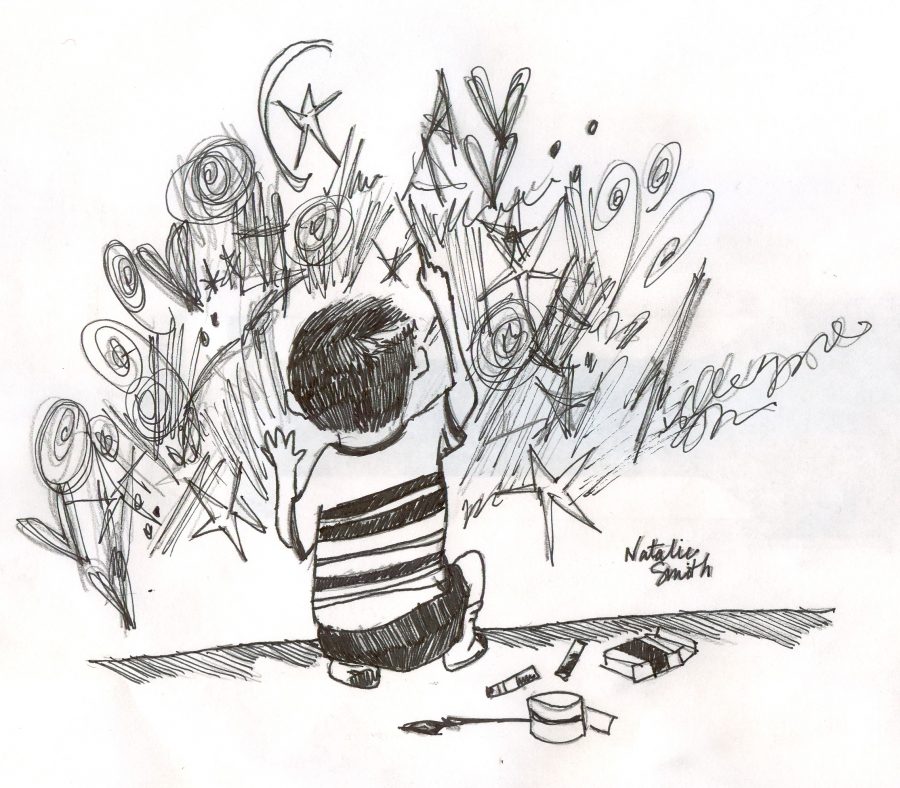ADHD makes focus a challenge
April 2, 2013
Some days, having to sit in class is a struggle. Your teacher seems to like the sound of her own voice, and the only thing you can think about is all the things you would rather be doing. Imagine having a disorder that made this common teenage struggle even more difficult.
Attention Deficit-Hyperactivity Disorder, or ADHD, is a behavioral and genetic disorder that causes students to have difficulties with paying attention, impulsivity, and hyperactivity.
“It can be difficult to keep thoughts organized [for students with ADHD],” counselor Julie Kirk said. “The key is learning to compensate.”
ADHD affects three to five percent of adolescents. Depending on the severity, students that are diagnosed with ADHD may have accommodations in the form of an Individual Education Plan (IEP) or a 504 plan that state their disorder, what it entails, and how to accommodate it. Some teachers recognize the disorder without a plan.
“I think they kind of pick up on it,” freshmen Tyler Pavlock said. “I’m so loud and I don’t focus.”
Math teacher Paul Reynolds has an understanding way of approaching the disorder.
“I have a student that can’t pay attention to me for more than 12 seconds,” Reynolds said. “I’m not going to punish him for it; I have a really small class and I can tell him to go do something different for three minutes and come back.”
Stimulants, like Adderall, are most commonly prescribed to treat ADHD because they have an opposite effect on people with the disorder; it calms them down. However, the side effects include loss of appetite, sleep problems and mood swings.
Sophomore Jessie Dawson was diagnosed with ADHD in the eighth grade. She said she always knew she had it, but her mom didn’t feel medication would be helpful.
“When I took medication it helped so much and then my mom felt really bad.” Dawson said. “[Without medication] I can’t focus. I’m not energetic; tt’s hard to get words for it.”
However, Dawson explained that the medication affects her mood, sometimes causing her to become depressed. Freshmen Nick Jacobus was diagnosed with ADHD in first grade when he had problems focusing.
“Sometimes I forget to take my pills and it irks me,” Jacobus said. “Like today I forgot, and I’ve gotten in trouble a few times; it doesn’t really bother me though.”
Kirk said that learning to cope puts a great deal of responsibility on students. Depending on the severity of a person’s ADHD, it can be controlled through medication, a different learning environment, or a combination of both. Others can control symptoms on their own.
“[Medication] made me too calm, so I stopped taking it,” Pavlock said. “I don’t do anything to control [ADHD]. I just go with it.”
ADHD medication is a weak amphetamine that, taken without the actual condition, produces a high. One anonymous student buys ADHD medication from students at school with the disorder. He explained what the drugs do for him.
“I can concentrate; it gives me a numbed out feeling that weed doesn’t,” the student said. “I think so much clearer, and it’s safer than other drugs if you’re smart about it.”
ADHD medications are subject to abuse by high school students. A person with ADHD may sell medication instead of taking it, and in some cases, people will tell a doctor the right symptoms in order to get a prescription. In 2012, 7.6 percent of high school seniors abused Adderall, according to a study by the University of Michigan.
When medication and other accommodations are used properly, having ADHD is not all bad for teenagers. Symptoms can be positive and give people unique qualities, like creativity and intuition.
“Without medication my mind goes everywhere,” Dawson said. “You’re thinking about so many things it’s easier to get new ideas and think outside the box.”







